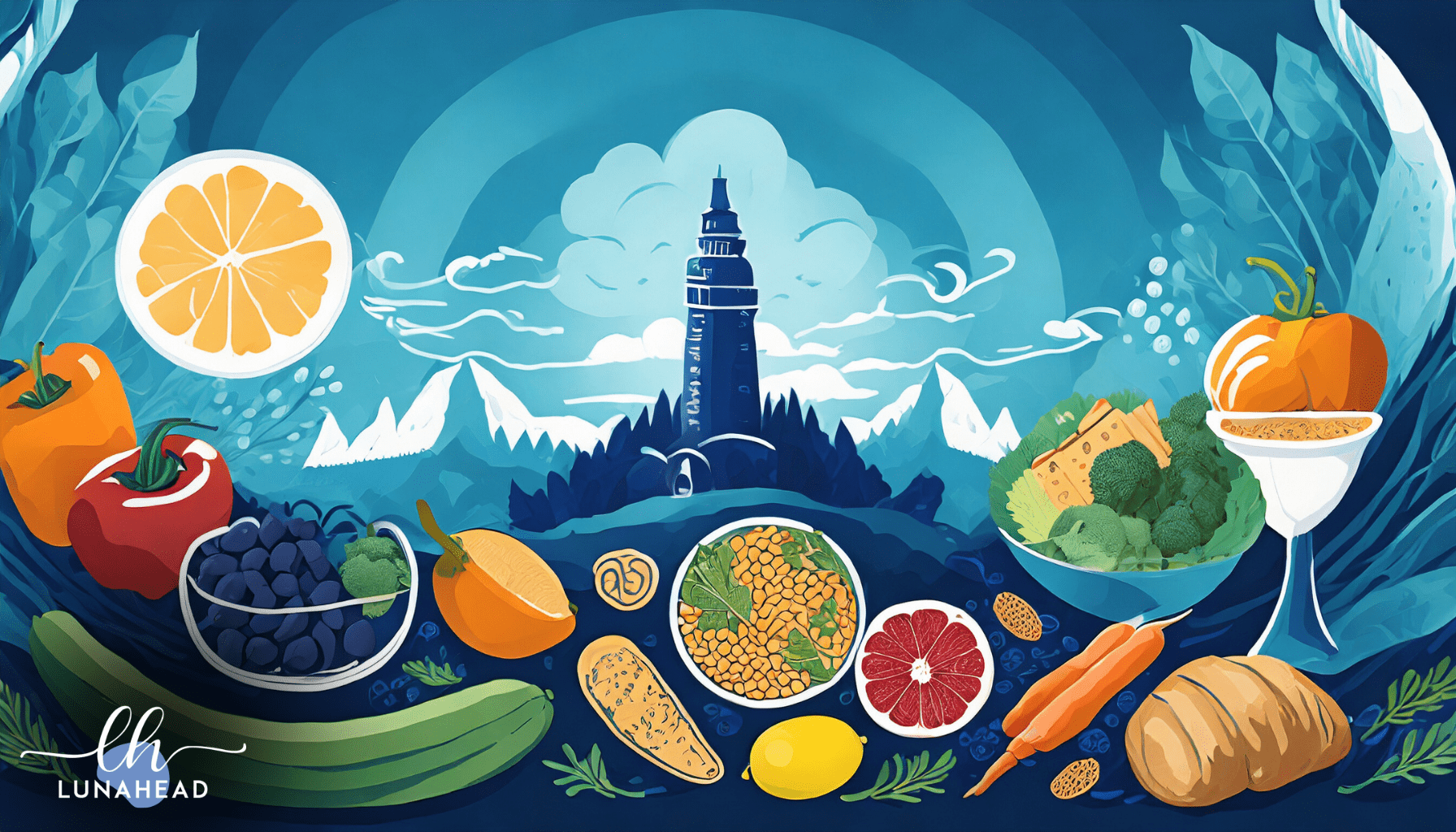
The Best Food Options for Long-Term Health and Well-Being
Promoting well-being and preserving long-term vitality require putting a healthy lifestyle first. A well-balanced and nutritious diet is key to promoting good health, even though exercise and enough sleep are essential elements. Making good dietary decisions can greatly help to a healthy and fulfilling life because the foods we eat have a direct impact on our bodily and emotional well-being.
This article analyzes some meals that are advantageous for preserving lifelong health. Moreover, it offers insights into their particular health advantages.
Vegetables and Fruits
A healthy diet includes fruits and vegetables because they provide a wide variety of vital vitamins, minerals, and antioxidants. They offer essential nutrients that boost digestion, support the immune system, and lower the risk of chronic diseases. Consuming a variety of fruits and vegetables guarantees that your diet is rich in nutrients that support general health. Leafy greens, berries, citrus fruits, cruciferous vegetables, and colorful produce like tomatoes, carrots, and bell peppers are some examples of fruits and vegetables that are nutrient-rich.
Sources of Lean Protein
For muscle growth, repair, and general body function, lean sources of protein must be a part of your diet. Choose lean meats like skinless chicken, fish, beans, tofu, and low-fat dairy items as your protein sources. These choices are advantageous for cardiovascular health since they offer high-quality protein while having lower saturated fat content. Including protein-rich foods in your meals also encourages fullness, which helps you manage your appetite and keep a healthy weight.
Healthy Fats
Contrary to popular belief, not all fats are harmful to health. Your diet must contain sources of healthful fats like avocados, nuts, seeds, olive oil, and fatty fish like salmon. Omega-3 fatty acids, which are there in these fats in essential amounts, improve heart health, reduce inflammation, and support brain health. Additionally, they support healthy skin and hair as well as the absorption of fat-soluble vitamins.
Whole Grains
Whole grains are a great source of fiber, vitamins, and minerals. Examples of such grains are quinoa, brown rice, oats, and whole wheat. They support proper digestion, give off long-lasting energy, and aid in keeping weight in check. Whole grains, as opposed to processed grains, retain their nutrient-rich bran and germ, providing a host of health advantages, such as a decreased risk of heart disease, type 2 diabetes, and several malignancies.
Spices and Herbs
In addition to enhancing the flavor of your food, herbs and spices have a number of health advantages. A few examples of strong herbs and spices with anti-inflammatory, antioxidant, and immune-stimulating effects include garlic, ginger, turmeric, cinnamon, and oregano. In addition to improving the nutritional value of your food, including herbs and spices in your cooking also promotes better overall health.
Increase the Intake of Nuts and Seeds
Nutrient-rich foods like nuts and seeds are a great source of fiber, vitamins, minerals, healthy fats, and antioxidants. They offer a range of health advantages, such as increased cognitive function, lower risk of developing heart disease, and control over body weight. A small amount of almonds, walnuts, chia seeds, flaxseeds, or pumpkin seeds added to your diet each day can have a big positive impact on your general health.
Dairy Products
Calcium, protein, and other necessary minerals are all there in dairy products like milk, yogurt, and cheese. Almond milk, soy milk, or fortified plant-based yogurts are good dairy substitutes for persons who cannot tolerate lactose, as well as for those who consume only plants as their main source of nutrition. These substitutes, which have calcium and vitamin D, offer comparable nutritional advantages.
Fermented Foods
Yogurt, kefir, sauerkraut, kimchi, and kombucha are just a few examples of probiotic-rich fermented foods. For proper digestion, nutritional absorption, and a robust immune system, a healthy gut microbiome is supported by these advantageous bacteria. Regular consumption of fermented foods can help maintain a healthy balance of gut bacteria and enhance digestive health in general.
Mindful Eating
A healthy relationship with food requires not only making good food decisions but also engaging in mindful eating. Enjoy your food, take your time, and pay attention to your body’s cues for hunger and fullness. Avoid distractions during mealtime, such as electronics or multitasking, and pay attention to your body’s cues for fullness. A mindful eating habit can help reduce overeating and encourage a positive relationship with food and general wellbeing.
Furthermore, you may download Lunahead. It is a fantastic mobile app that can help you concentrate even more in life. There are many soothing meditation audios in this amazing mindfulness app. You may listen to them on a regular basis.
Conclusion:-
To sum up, for optimum health to be maintained over the course of your lifetime, it is crucial to include a wide variety of nutrient-rich foods in your diet. A diet that is well-balanced should be built on fruits, vegetables, whole grains, lean proteins, healthy fats, and water. The nutritious content of your meals is further improved by including nuts, seeds, fermented foods, herbs, and spices. You can develop good eating habits that will support your long-term health, vitality, and well-being by exercising conscious choice and mindful eating. A healthy diet should not only focus on the physical advantages; it should also establish a positive relationship with food and support mental and emotional well-being.
